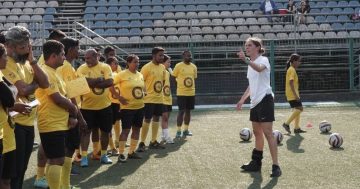
Sport isn’t what it used to be.
In times gone by it was about enjoyment and togetherness; a pastime that delivered untold pleasure to those who played it. It used to be pure.
But somewhere along the line, professionalism was ushered in and sport as we knew it changed forever. The focus slowly but surely shifted from what was happening on the pitch to what was going on off of it.
The advent of professionalism allowed money and commercialism to develop their own voices where they once had never been heard. And now, sport’s foot is enmeshed in the voracious machinery of the market.
Look no further than football (soccer). Football isn’t really just a game anymore. Manchester United, for example, is more than just a club. It is a brand; one of the most saleable brands in the game, in fact.
Football is now referred to as a product; a tangible object that can be sold to the highest bidder. And with its shift away from being merely a game, the sport has undergone radical changes.
The emphasis, it seems, is no longer on having fun. Instead, the focus is on winning. This is most evident at the elite level, where success is considered to be paramount.
Away from the elite realm, the sport’s grassroots level has remained largely preserved and detached from football’s commercial dimension. But reports in the local media earlier this week suggest the effects of professionalism have begun trickling down to the amateur game.
Capital Football, the governing body for football in the ACT, announced on Monday its decision to take the unprecedented step of locking the crowd out of an under-12s football match. The decision comes ahead of Canberra FC’s game against Canberra Olympic at Deakin Stadium on August 23.
The two sides last met back in June, and the fiery encounter culminated in an FC player kicking his Olympic opponent. The players then exchanged punches before the children’s parents got involved in a melee akin to the violent incidents commonly seen in European club football, which often result in matches being played behind closed doors, the loss of competition points and the separation of fans, among other things.
Capital Football responded at the time of the incident by suspending the FC player and banning the two parents involved in the incident.
But the decision to go a step further by playing the pair’s next fixture behind closed doors demonstrates the seriousness of the situation, and shows that Capital Football is aware of the associated risks (the sport’s image being tarnished, a drop in participation numbers).
Capital Football has acted in a way to prevent the local game being pushed toward potential disaster – the stage at which the elite level is currently at – and for that it deserves applause.





















